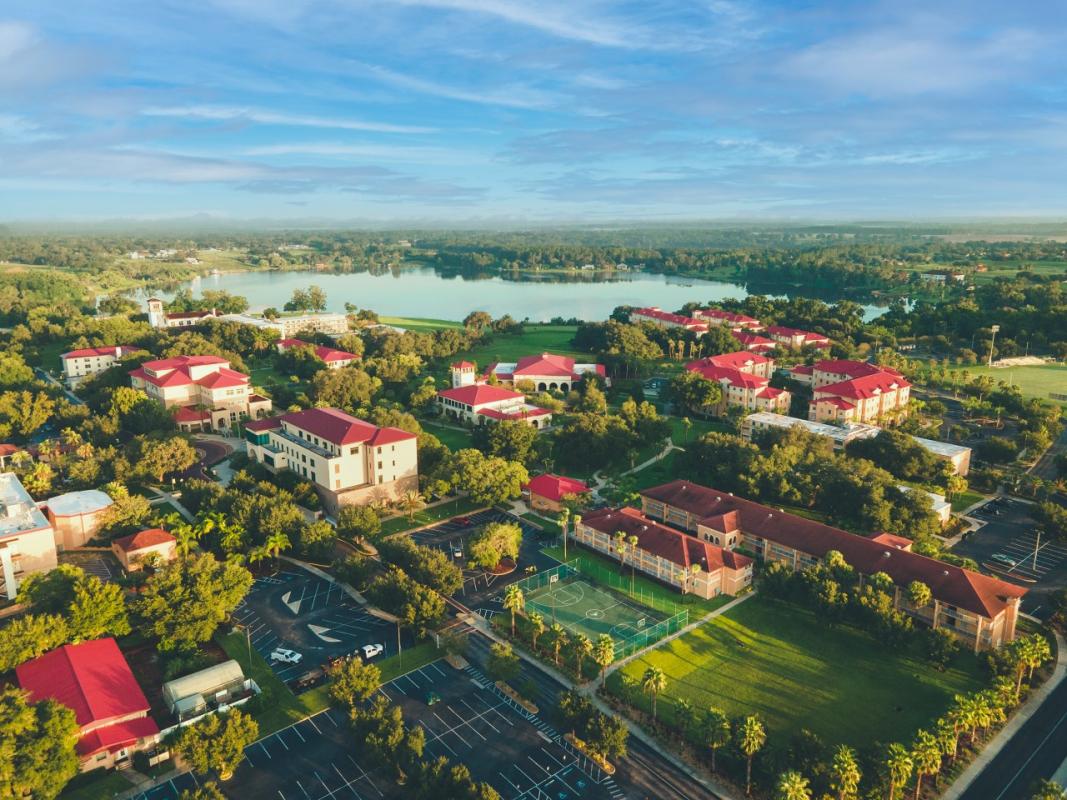
Saint Leo University, a liberal arts institution in Florida, will merge with Marymount California University, a liberal arts institution on the West Coast.
The two Roman Catholic universities, more than 2,500 miles apart, sealed the deal Thursday after seven months of negotiations. Leaders at both institutions hope to complete the transaction by January 2023, according to Brian Marcotte, president of Marymount California. Saint Leo will seek approval of the acquisition from the Southern Association of Colleges and Schools Commission on Colleges, its accreditor, beginning Sept. 1.
Marymount California has sought a buyer for a while. The university started looking for a partner institution two years ago after its leaders expressed concern about the changing and competitive higher education landscape. Marymount’s undergraduate enrollment has declined steadily since it peaked at 1,179 students during the 2014-15 academic year, data from the National Center for Education Statistics showed. During the 2019-20 academic year, the university enrolled 622 undergraduates.
“Like every university, we want to attract more students to the programs that we have,” Marcotte said. “We’re a small university, and we want to offer as much as we can. We could build programs like that, or we could join with someone else who already has the programs -- and that’s the pathway we went down.”
The COVID-19 pandemic hastened Marymount California’s search. When the university was forced to close its campus in the spring of 2020, it struggled to retain students through online learning. Many Marymount students choose the university because of the tight-knit, residential campus, which was unavailable during the pandemic, Marcotte said.
“I’ll just be very blunt -- that causes some damage in terms of enrollment,” Marcotte said. “We know and knew then that we would have to do something definitive to help rebuild after we started back up again.”
Because both universities are nonprofit institutions, Saint Leo will not technically purchase its California peer, said Jeffrey Senese, president of Saint Leo. Instead, Marymount will effectively donate its land and property to Saint Leo in exchange for Saint Leo taking on Marymount’s debt.
Marymount California’s permanent debt is about $3.7 million, and the institution is valued at $60 million, making the merger “a safe decision” for Saint Leo, Senese said.
Saint Leo plans to retain an “overwhelming majority” of the California university’s employees and will likely hire additional employees after the merger is complete, Senese said. The Florida-based university will also recruit two of Marymount’s existing board members to join the Saint Leo board.
Marymount’s existing programs will continue as is throughout the transition, after which they will operate under the Saint Leo name and brand. Saint Leo plans to offer some online courses at its California campus during and after the transition period.
“We have 70 online programs, so we’ll do online out there, for sure,” Senese said. “We’re already approved in California to do that.”
Marymount California students will be able to graduate and earn degrees from the university throughout the transition period. After that, they will still be able to stay at the California campus but will be enrolled at Saint Leo.
Saint Leo’s online programs are growing. During the pandemic, online enrollment at the university jumped from 4,000 students to 10,000. Three years ago, the university lent its online program marketing skills to Notre Dame de Namur University, which was struggling to market its master’s program in public administration.
Marcotte plans to stay on as Marymount California’s president through the transition period, and he is unsure what will be next for him after its completion.
“I will do whatever is necessary to help this transaction go as smoothly as it possibly can,” Marcotte said.
While Marymount has sought a buyer, Saint Leo has been looking to expand its reach.
“We think that this is a potential model for the future, that we would pick up a number of partners this way,” Senese said. “We’ve strategically done some market studies across the country and are looking at markets where we don’t have presence and where we think our brand and our kind of approach makes sense.”
The university already operates 17 adult learning centers in the United States, many of which are located on or near military bases.
“We found that those military communities really like what we offer,” Senese said.
All 17 of those centers were built out independently by Saint Leo -- Marymount California is the university’s first acquisition.
The university was negotiating with Iowa Wesleyan University last year about potentially acquiring the institution, but those talks fell apart after the two institutions hit roadblocks related to financial conditions, student financial aid and accreditation. Saint Leo also talked with Wesley College about a potential acquisition before the Delaware liberal arts institution was bought by Delaware State University.
But Marymount is just the beginning of Saint Leo’s growth, according to Senese. He has a visit scheduled next week with another potential acquisition candidate.
 from Inside Higher Ed https://ift.tt/3BS9epn
from Inside Higher Ed https://ift.tt/3BS9epnvia IFTTT
Comments
Post a Comment